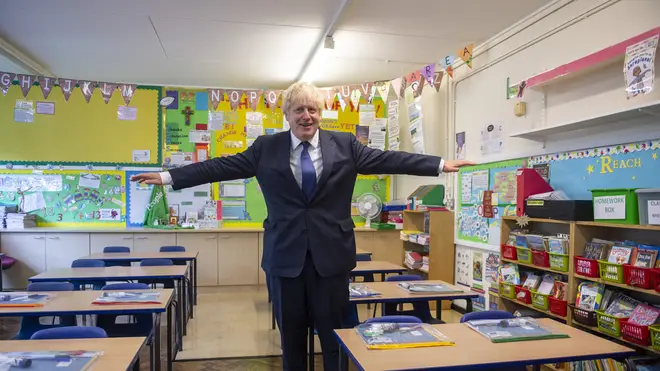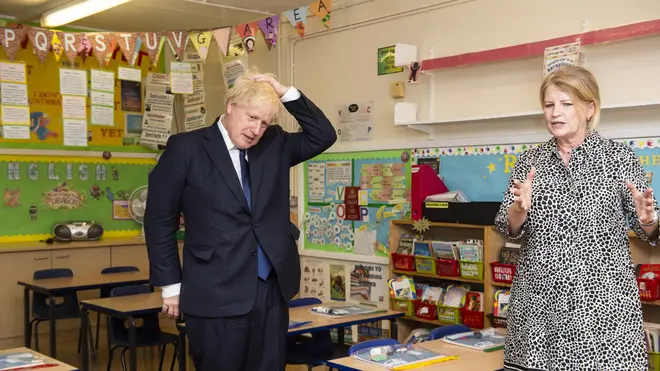
Paul Brand 10am - 12pm
10 August 2020, 11:10

Prime Minister Boris Johnson said he hoped schools would not be forced to close as a result of local action to combat coronavirus spikes.
The PM, who was visiting a school in east London, said: "I very much hope that doesn't happen for any pupils but clearly what we are doing - the way we are trying to manage the Covid pandemic - is to have local measures in place and local test and trace to introduce restrictions where that's necessary.
"But, as we have all said, the last thing we want to do is to close schools.
"We think that education is the priority for the country and that is simple social justice."
Read more: PM to urge schools to reopen as headteachers 'lose patience' with Government plans
His comments come as a leading scientific expert has said children are "very minor players" in the transmission of coronavirus and opening schools would "add little" to the reproduction rate of infection.
His comments were echoed by Education Secretary Gavin Williamson, who said there was little evidence of transmission in schools.
However, teachers, scientists, opposition politicians and the children's commissioner for England Anne Longfield have all called for improvements to testing before pupils return.

Earlier Care Minister Helen Whately said it is a "national priority" to get children back to school in autumn.
Ms Whately told Sky News: "Getting our children back to school this autumn is absolutely a national priority, we're determined to see children back to school.
"We had to close down schools back in March as part of the lockdown, I know that teachers and parents have made huge efforts to continue children's education from home.
"But it's not the same as children being in school and sadly we have seen children from disadvantaged backgrounds more likely to fall behind during this time, so it's essential that we have children back at school this autumn."
She added: "Schools will be a safe environment for children to be taught in, of course in the event a child has a temperature or any type of symptoms, it's very important they get a rapid test.
"Schools will be provided with home test kits."

Mother's concerns over her children returning to school following lockdown
As we reported earlier, the Association of School and College Leaders has said teachers might teach students on a week-on, week-off basis if there was a resurgence of coronavirus and schools were forced to limit the number of pupils attending, with the onus on parents to home-school in the alternate weeks.
The union's general secretary Geoff Barton said schools were "losing patience" with the Government's demand to have all children back in school next month while framing no back-up plan if this was not possible.
"If you want to limit the number of children on site or travelling to and from school, a big part of that is using rotas and the obvious way to do it is 'week on, week off '," Mr Barton told The Daily Telegraph.

Maajid Nawaz: reopening schools will save children from gangs
Professor Russell Viner, president of the Royal College of Paediatrics and Child Health and a member of Sage, said studies had suggested children were "very minor players in the transmission overall" of the virus.
He said: "There are five studies from around the world from New South Wales, from Australia, Singapore, from Ireland, from Germany, and from France, and in each of those there appears to be very, very little transmission in schools.
"We know that children can and do transmit this virus, of course they do, but they're very minor players in the transmission overall, particularly younger children.
"It's increasingly clear that older children - teenagers probably - transmit as much as adults, but schools themselves play very little role.
"They're a closed setting but actually we see very few outbreaks in schools, large outbreaks, and actually there's very little transmission from child to child or child to adult, actually much of the transmission in schools is from adults bringing it in, particularly staff.
"There's increasing evidence in the UK and the Government is doing a number of studies which have showed apparently very little transmission and very little infection when schools were open in England."